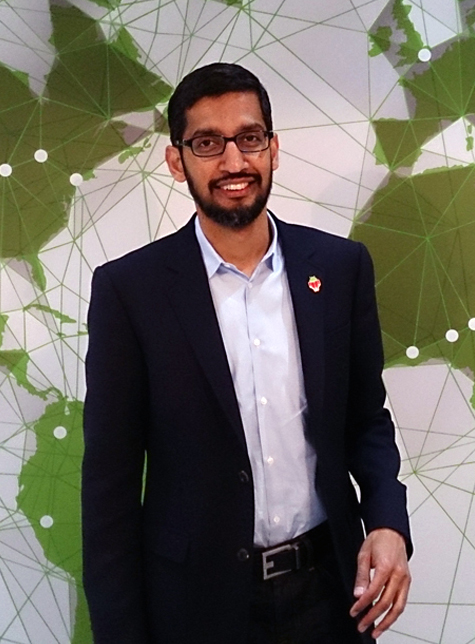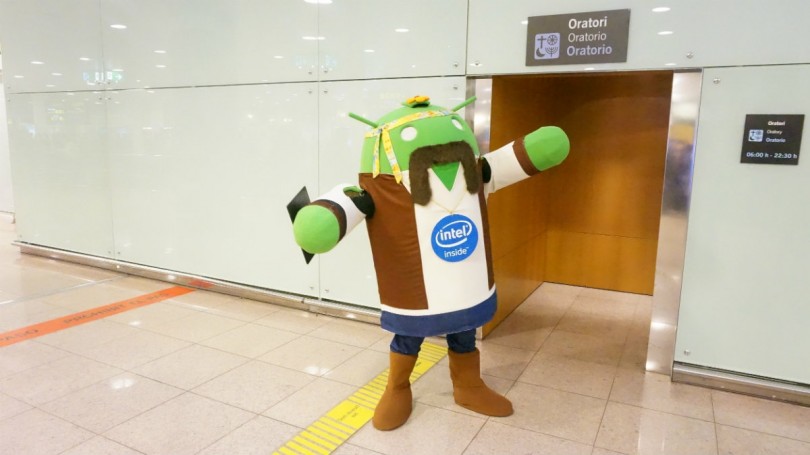aNewDomain — It’s not confirmed, but many sources are starting to say that Chrome OS is on its way to the dump. And the conjecture continues that Android will replace it — mobile being what mobile is.
![]() Our first clue comes from Nexus Day — when Alaphebt’s Google announced this year’s line up of Nexus smartphones, the Nexus 5x and 6p. Google also announced the Chromebook Pixel C on that day. The Pixel C, for those who missed it, is a 10-inch tablet that looks a lot like Microsoft’s Surface, or the newly announced iPad Pro — a tablet with attached keyboard and, in this case, a USB-C port.
Our first clue comes from Nexus Day — when Alaphebt’s Google announced this year’s line up of Nexus smartphones, the Nexus 5x and 6p. Google also announced the Chromebook Pixel C on that day. The Pixel C, for those who missed it, is a 10-inch tablet that looks a lot like Microsoft’s Surface, or the newly announced iPad Pro — a tablet with attached keyboard and, in this case, a USB-C port.
The Pixel C will run Android Marshmallow — not Chrome OS. But it’s a “Chromebook” …
The Quiet Departure of Chrome OS
If the rumor is true, Chrome OS will most likely be replaced with Android. It’s a big step-up for Android development in a lot of ways — and a sneaky plan by Google to put Android on a ton more gadgets. I can understand the affinity Google has for Android, but why cannibalize Chrome OS? Was the operating system a failed experiment?
In my opinion, Chrome OS was definitely not a failure. The Chromebook is one of the top selling devices in the laptop market to date. These devices run on minimal hardware and basically redefined the cost of a laptop, which was huge for consumers that simply wanted to check their social media and web applications.
The Chromebook and Chrome OS are also heavily implemented in the education system in the U.S. — they are used in a ton of public schools to help kids learn. Free applications like Google Docs and Sheets are incredible resources for students and consumers everywhere, and they all run in the familiar browser, Chrome.
There’s a large part of me that thinks this rumor can’t be true. Killing off Chrome OS doesn’t make sense. I’ve heard for the last ten years about “fragmentation” when it comes to Android devices. Even if the sun were to set on Chrome OS, Android devices will still not share uniform specifications. Screen size will vary, hardware will be different, and the custom OS overlay will be different.
With this in mind, is it feasible to engineer all the functionality of Chrome OS into Android when fragmentation is part of the business model?
If the functionality could be implemented, then Alphabet and Google may be looking to unify everything. Microsoft has taken its desktop operating system, Windows 10, and put it on mobile phones and tablets. Why can’t Google do the same, but in reverse? If it were seamless, unification would mean more opportunities for developers because their apps would work on laptops or desktops in addition to smartphones and tablets.
Sundar Pichai and Chrome OS
 Sundar Pichai, the CEO of Google since Alphabet’s restructuring, has been Chrome OS’s biggest advocate. Over the years he has pushed for a less expensive computing device and an experience that’s great for consumers. Of course, this occurred during his tenure as Senior Vice President of Chrome. Pichai succeeded in evangelizing Chrome OS. It has a wide recognition because of him.
Sundar Pichai, the CEO of Google since Alphabet’s restructuring, has been Chrome OS’s biggest advocate. Over the years he has pushed for a less expensive computing device and an experience that’s great for consumers. Of course, this occurred during his tenure as Senior Vice President of Chrome. Pichai succeeded in evangelizing Chrome OS. It has a wide recognition because of him.
And Pichai, speaking to analysts, recently said, “Mobile as a computing paradigm is eventually going to blend with what we think of as desktop today.” This sounds pretty much like they will merge, right? Maybe his statement is a reflection of Steve Job’s “post-PC era,” in which devices are used everywhere by everyone.
Living up to that statement is possible, but comes with challenges and limitations. Chrome OS is limited as a free operating system when it comes to capabilities and app compatibility. But Android has just as many limitations, if not more, than Chrome OS.
How would full computation work on mobile devices, or on an Android tweaked for PC use? Nobody will subject themselves to a poor computing experience just because it works across their devices. We all saw what happened with Windows 8.
I can’t speculate anymore on what Alphabet is thinking with this move. What are your thoughts? Should Chrome OS be put out to pasture or is the “Android all the things” move the way to go?
For aNewDomain, I’m Ant Pruitt.
Images in order: Android by Ant Pruitt, All Rights Reserved; Chromebook Pixel C screenshot courtesy Google; Sundar Pichai via Wikimedia Commons













